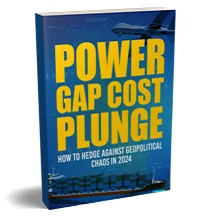Late last week, while many were busy paying tribute to their Irish brethren with good cheer and libations, the Group of Seven (G-7) nations were busy monkeying around in foreign exchange markets with their first coordinated intervention in over 10 years. What was their goal? To devalue the Japanese yen.
Following the earthquake, tsunami, and nuclear crisis, something a bit counterintuitive happened. The yen didn’t go down…it went up. In fact, not only did it go up; it soared.
“The yen surged 4.5 percent in 26 minutes March 17 to a post-World War II high,” reported Bloomberg. Pushing up the yen was the concern that Japanese investors would convert foreign investments back into Japanese assets to pay for reconstruction. Sensing a mass repatriation of assets was underway, foreign exchange traders did their part to further strengthen the yen.
For large exporting countries, like Japan, a stronger currency hurts their economy…their products become more expensive to international consumers and demand drops. So the U.S. Federal Reserve, Bank of Canada, Bank of Japan, the European Central Bank, the Bank of England, the Bank of France, Germany’s Bundesbank, and the Italian Central Bank all put their citizen’s money to use in the foreign exchange market in a coordinated effort to devalue the yen.
“Japan’s Finance Minister, Yoshihiko Noda, said the coordinated central bank interventions are an attempt to limit the damage a strong Japanese currency will have on the nation’s economy.”
A Brief Look Back
Not since the fall of the Berlin Wall has the Japanese economy, or its stock market, experienced sustained growth. Sure there have been glimmers of hope, green shoots of recovery, and periods of optimism over the years, but the sanguinity has always quickly turned to despair.
The simple fact remains: On December 29, 1989, the Nikkei 225 closed at 38,916. Last Friday it closed at 9,206…down 76-percent over 20-years later. The unfortunate souls who bought stocks in December of 1989 and held on to them will see most of their adult lives pass by before getting back to even – if ever.
Awful as it is, through a series of tragic events, capital may finally be flowing into Japan. While a stronger yen may weaken the competitiveness of Japanese exports it will, at the same time, lower rebuilding costs. What we mean is a stronger yen isn’t necessarily a bad thing.
After some initial success at lowering the value of the yen during last Thursday’s intervention, by Friday, it had gained back most of what it had lost against the dollar. Moreover, once the excitement of the G-7 currency intervention fades away the yen will likely strengthen in foreign exchange markets anyway.
More importantly, what will be the ultimate ramifications?
A Modest Alternative to Monkeying with Currency Markets
Perhaps the G-7’s coordinated intervention in currency markets will successfully devalue the yen and help support Japan’s fragile economy. Nonetheless, government monkeying and manipulation of markets often have unintended consequences far more damaging than any good they may achieve.
The record of central bankers for achieving stable money values is dreadful. “The Plaza Accord of 1985 was instituted to depreciate the dollar at the expense of the yen and the German Mark,” explains Jeff Snider of Atlantic Capital Management. “It worked so well that another agreement was needed to halt the dollar’s depreciation just two years later.
“The second accord had little effect and the yen kept on rising until Japan’s asset bubbles collapsed (due in part to the inability of its yen-dependent export economy to keep pace with asset prices).”
You know what happened next. Following the collapse of Japan’s stock and real estate markets the country fell into a 20-plus year on again off again recession that still continues to this day.
Who will ultimately benefit and who will ultimately be harmed by these interventions? The central bankers haven’t a clue. They likely haven’t even thought about it. Alternatively, if we had sound stable money none of their shenanigans would be needed in the first place.
Sincerely,
MN Gordon
for Economic Prism
Return from A Modest Alternative to Monkeying with Currency Markets to Economic Prism





